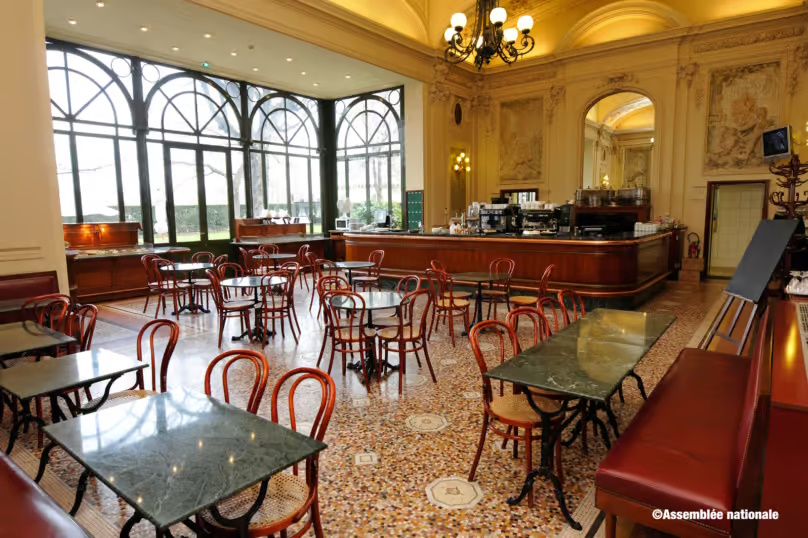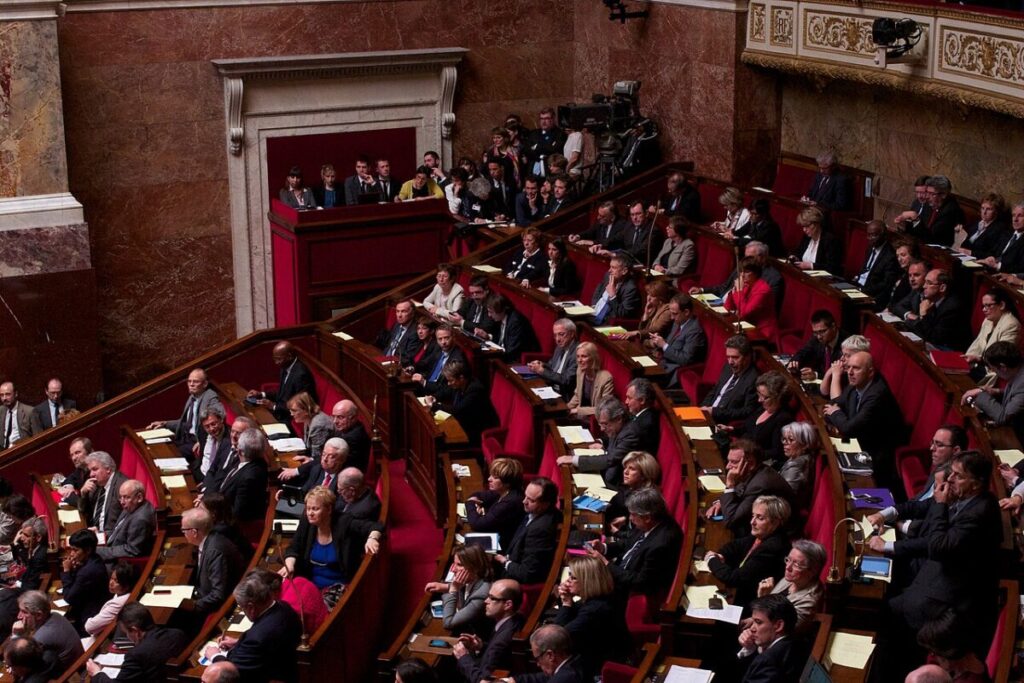Should France’s Deputies Be Allowed to Drink at Work?
Inside the French National Assembly, the famous buvette doesn’t look like a bar at all. It resembles a Belle Époque café, with tall arched windows opening onto the gardens, mosaic floors, marble tables, and bentwood chairs.

A long wooden counter stretches across the back, where coffee and wine share the same space. It’s elegant, bright, and quiet, a place where political rivals pause between debates, away from the cameras.
But this small café has become the subject of a national argument.
A report published on October 31, 2025, by Emmanuel Duplessy calls for ending alcohol sales at the Assembly’s bar. His reasoning is symbolic: deputies should not enjoy privileges ordinary workers can’t.
Alcohol is banned in most workplaces in France. Yet inside Parliament, it’s still poured – and often paid for with public money through mandate fees.
The report doesn’t accuse MPs of drinking excessively. It even notes that serious incidents are rare. But it stresses that image matters.

In a time of public mistrust, lawmakers should set an example. The bar earns roughly €100,000 a year from alcohol sales, but Duplessy insists the reform isn’t about saving money. It’s about ethics.
Those supporting the ban say taxpayer-funded wine crosses a line. Critics argue the buvette is part of France’s culture and parliamentary life. For decades, it’s been where tense arguments cool down and where cross-party conversations happen naturally.
It’s also open not just to deputies, but to ministers, staff, and even former MPs.
Unions haven’t issued official statements, though their general stance on workplace sobriety suggests quiet support for reform.
Inside the Assembly, opinions are divided between those who see change as overdue and those who defend tradition as part of the institution’s identity.
What started as a question of workplace policy has become a reflection of France itself: how to balance culture, privilege, and responsibility.
Ending alcohol sales wouldn’t just close a bar tab, it would close a chapter of parliamentary life that has lasted more than a century.
